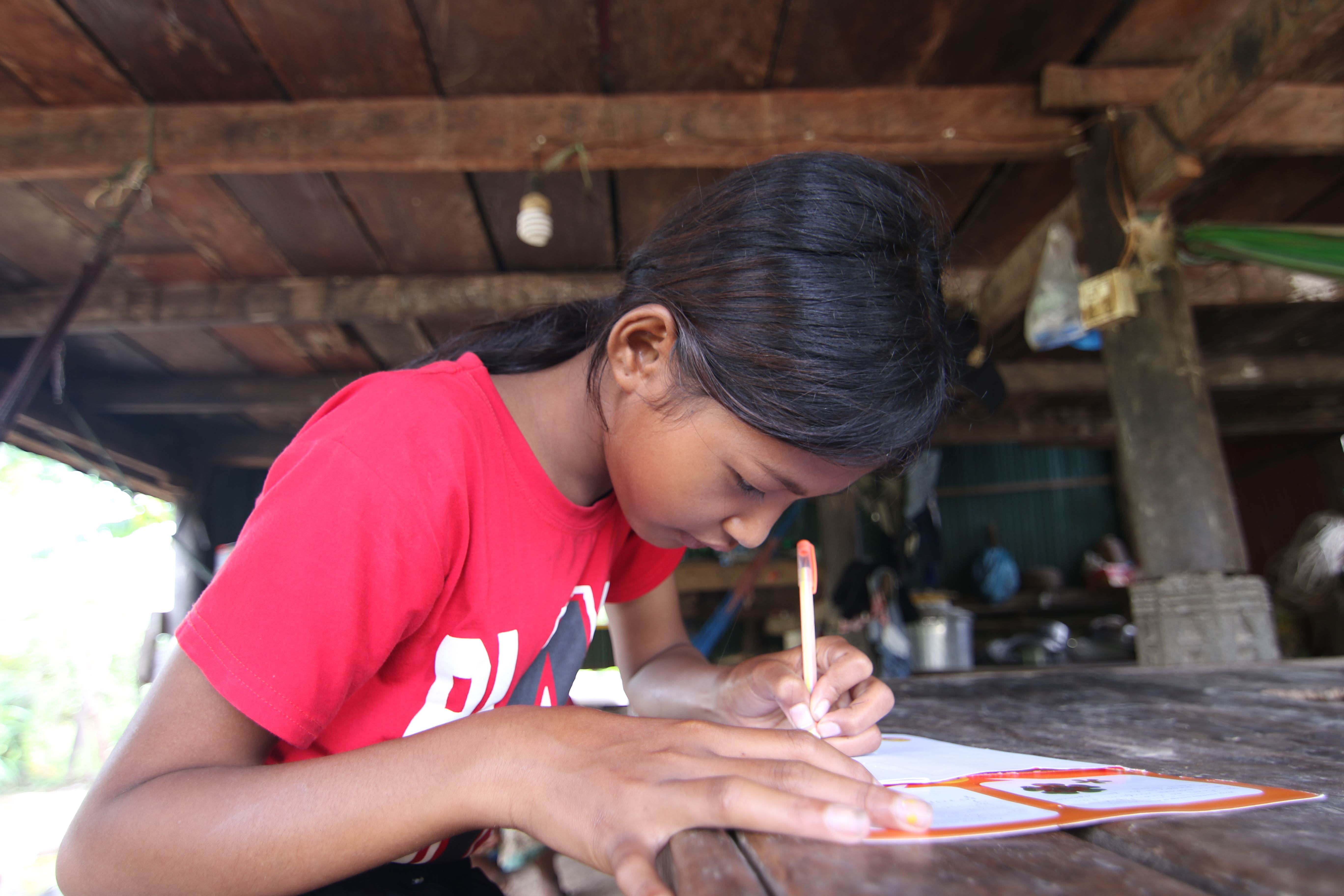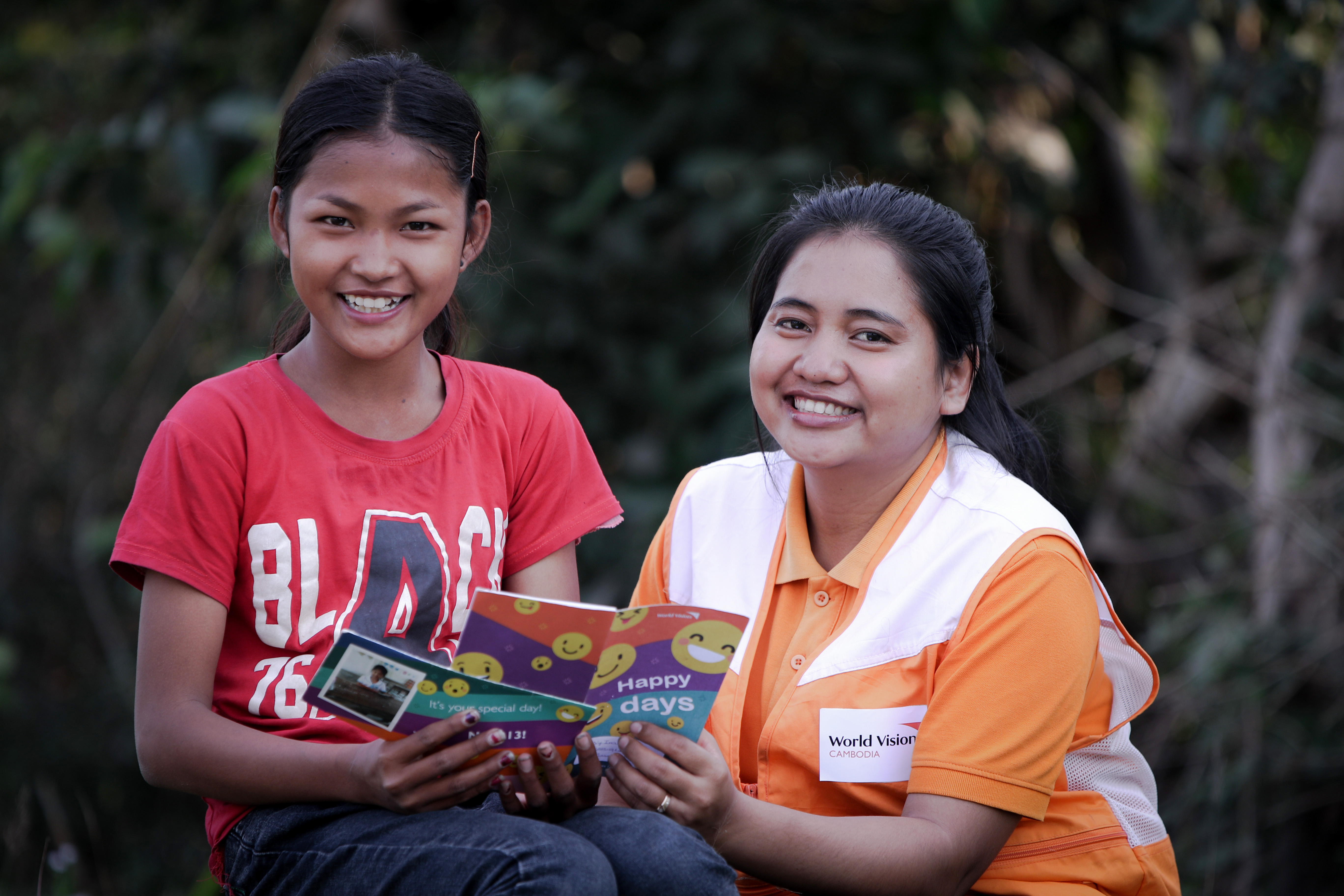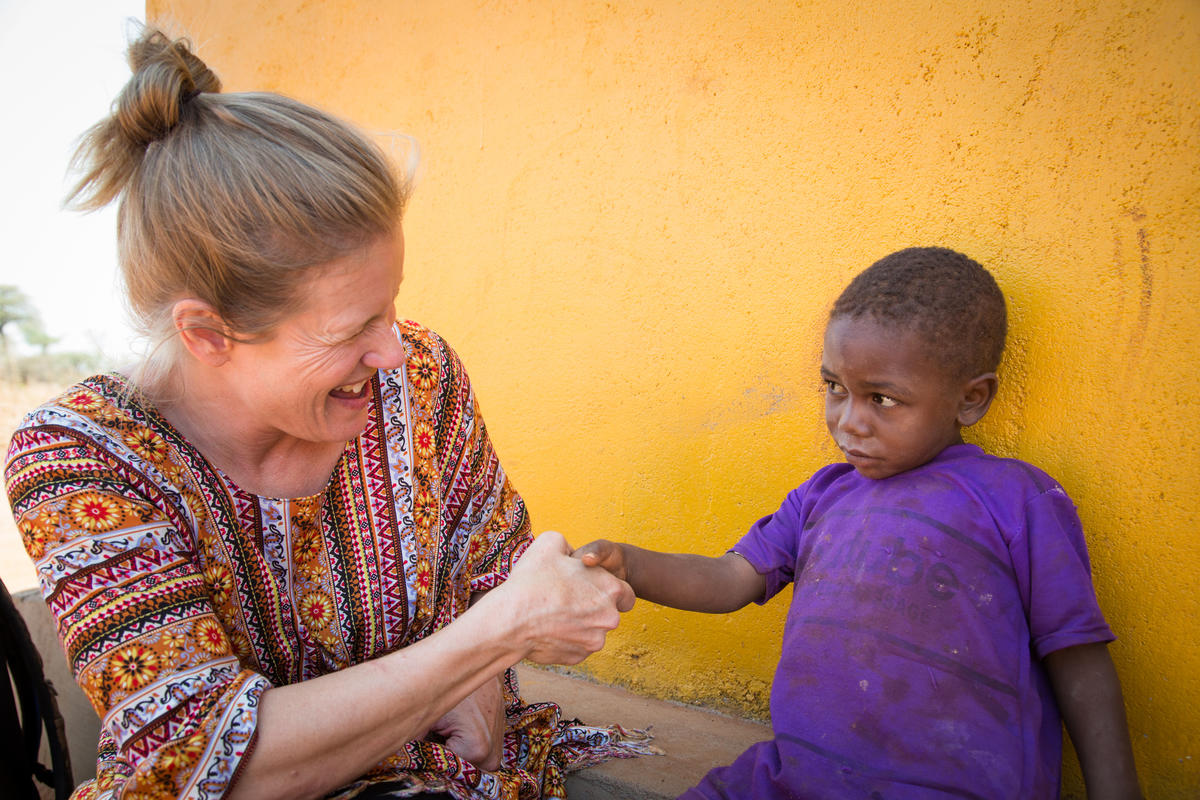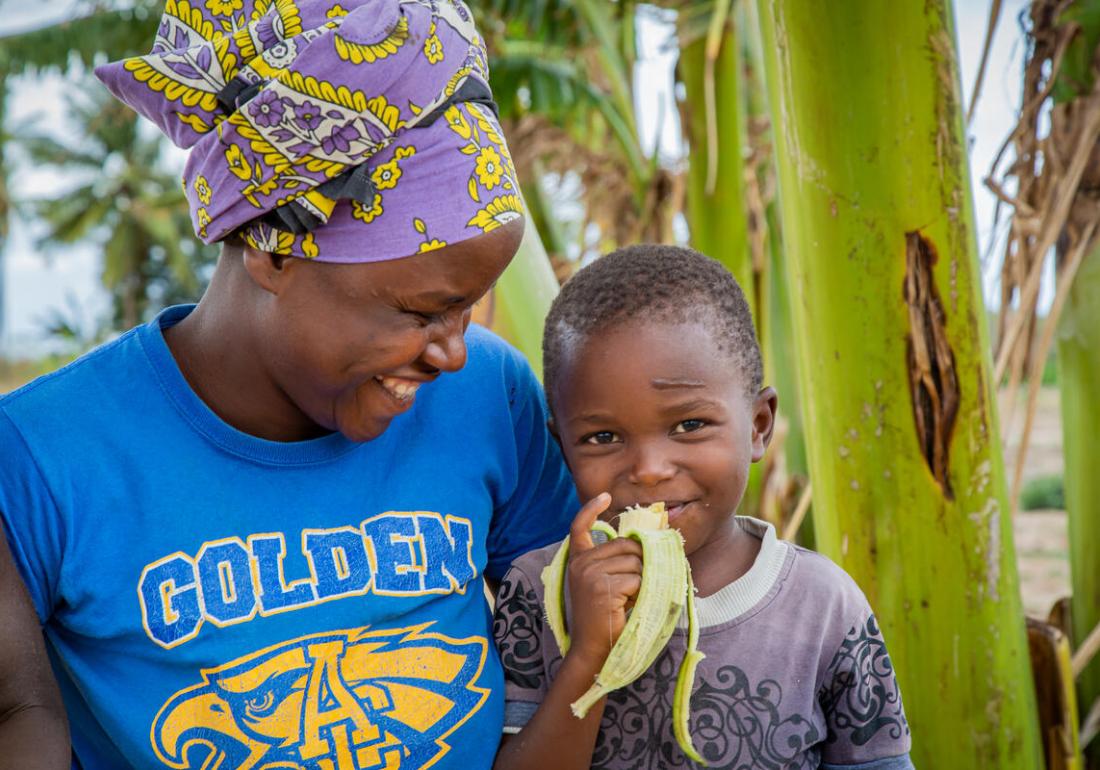
5 questions you’ve been wondering
about your sponsored child’s letters and photos
There’s nothing like seeing a package in the mail or that notification pop up on your phone or inbox! But from time to time, you might have wondered about the letters, photos and videos you receive from your sponsored child. Here are the answers to some of the questions you have probably wondered but were too afraid to ask.
1. Why isn’t my child smiling in their photo?

“Say cheese!” Many of us can’t resist smiling for the camera! In fact, if the smiles aren’t big enough, the photo will often be taken again. And again! But in some cultures, smiling for a photograph is not the norm. They can take the practice very seriously, and as a result children will not smile in a photos – even if they are feeling happy!
Sometimes children can also be shy or afraid of the camera! When capturing photos of children for sponsors, we respect their personal rights and their culture. If it’s not commonplace for them to smile when having their photo taken, we won’t force them.
Writing letters is a great way to learn about your sponsored child’s culture and ask them things you might not know about what life is like where they live in and how they see the world.
2. Why aren’t update videos from my child translated?

Having a window into your sponsored child’s world is an incredible part of the sponsorship experience. It can give you more understanding of their community and daily life, and it allows you to see more of their personality than in a photograph.
Because of the many language dialects of children sponsored all over the world, providing translation for over 2.3 million videos every year would be very time and cost-intensive. Instead, our staff and volunteers are focused on using their time and your financial support to improve the lives of your sponsored child and those in their community, ensuring they have the water, food, education, healthcare, protection and opportunities they need to thrive.
Despite not having translation, we hope you enjoy video updates from your sponsored child and the opportunity to hear them speak in their own language.
3. From their photo, it is not obvious that my child needs to be sponsored. Why is this?

Poverty portrays itself in very different ways around the world – in some places high-end fashion replicas are commonplace in the local market. In other locations, family jewellery is shared and adorned for photographs. Almost every home in post-Soviet homes have a piano but many may not have a fridge! What is considered wealthy in one location may be very different in another.
We believe the lives of children, their families, and members of their community should always be portrayed with accuracy and dignity.
That’s why our staff and volunteers are careful to give children and their families the opportunity to be photographed the way that they would like you to see them – with dignity and pride in their appearance. In some communities, this might mean that a special dress or a shirt is shared among several children for photos, or some children might choose to dress in their special Christmas outfit, so they look their best for you. Others like 10-year-old Chengzhen from China (pictured above) might proudly wear the traditional clothing of their ethnic tribe. Whatever clothing your sponsored child wears, our goal is always to represent all children with respect and dignity.
4. Why doesn’t my sponsored child answer my questions in their letters?

Writing and receiving letters from a sponsor is a hugely exciting and encouraging experience for many sponsored children – but it can be hard work for some children to reply, depending on their age and education level. Like children anywhere, their reading and comprehension skills will vary. Some will be full of words, creativity and stories to tell. Others will find it harder to express their thoughts or create a cohesive message for you, especially if they live in a place where storytelling is traditionally done verbally. Children often start school later in developing countries as well, so their abilities will rarely match children of the same age in a developed country.
As letter writing is not just about writing words on a page, but the ability to communicate ideas, stories and emotions, it’s a skill many children are still developing. As a result, they may not always answer your questions or ever at all, even if they are encouraged to. That means their letters may be similar to each other for some years, until their letter writing skills improve. But with each letter you send, they will reply, giving them another opportunity to grow their reading, comprehension and communication skills which will empower them for life.
5. Why do replies from my child take so long to arrive?

When you become a sponsor, you’ll receive an introductory letter from your sponsored child within the first three months. After that, it’s up to you if you’d like to keep the conversation going by sending letters to your sponsored child online or in the mail. Each reply will take time to reach you because of important World Vision processes designed to protect children’s safety, as well as international mail systems (if you do not receive letters digitally).
Usually, a reply can take up to two months if you receive them via a portal, email or app, or up to six months if you receive a hard copy in the mail. That’s because it takes time for World Vision staff or volunteers to check your letter for safety and appropriateness, translate it and then deliver it to your sponsored child. Then the child writes their reply, our staff translate it and then send it to you. Sometimes a third level of translation is required depending on the language you speak.
There can sometimes be other reasons for a delay that are beyond our control like natural disasters or even the COVID-19 pandemic, which created chaos in international mail systems around the world and created new challenges for us through local lockdown rules. If you haven’t received a reply within six months, please contact us.






